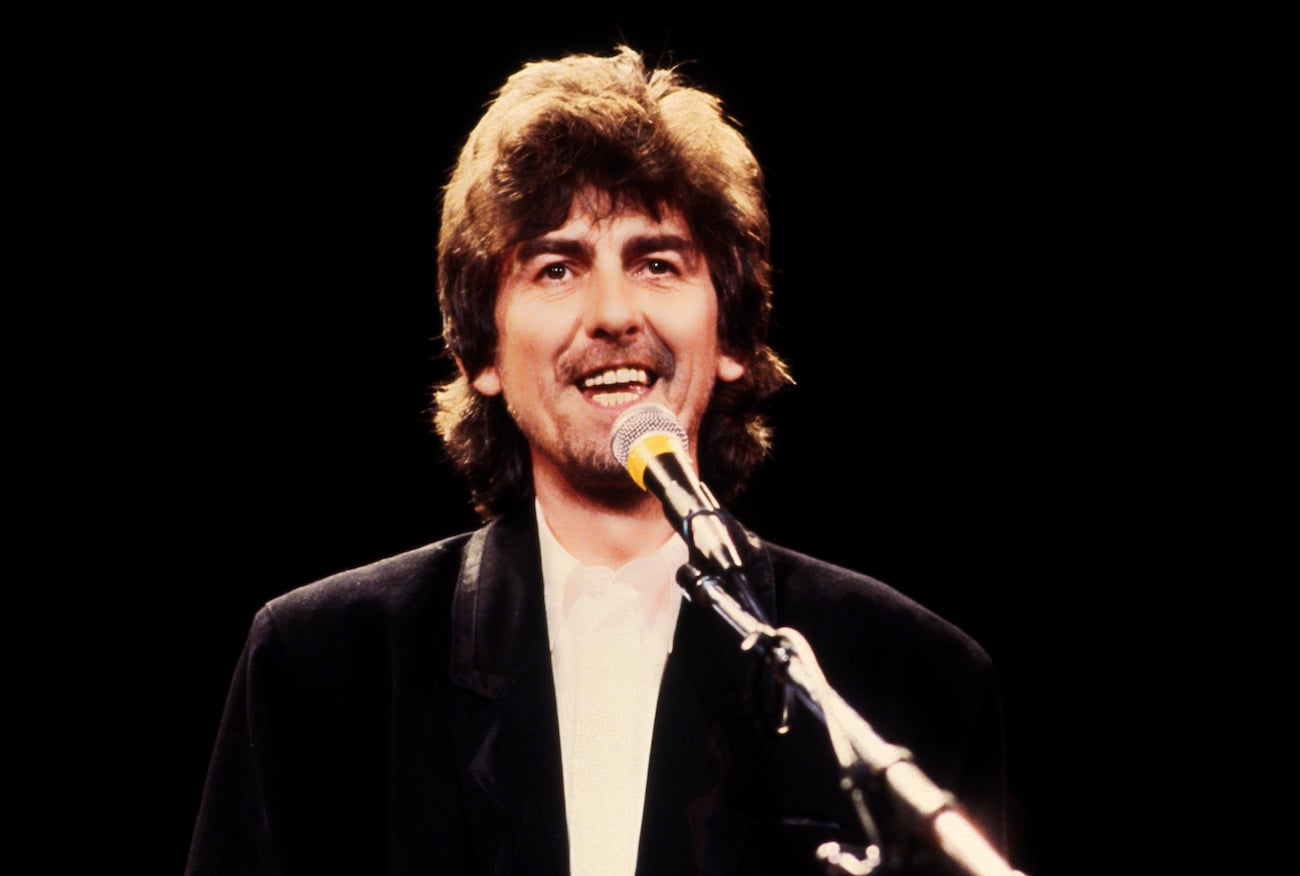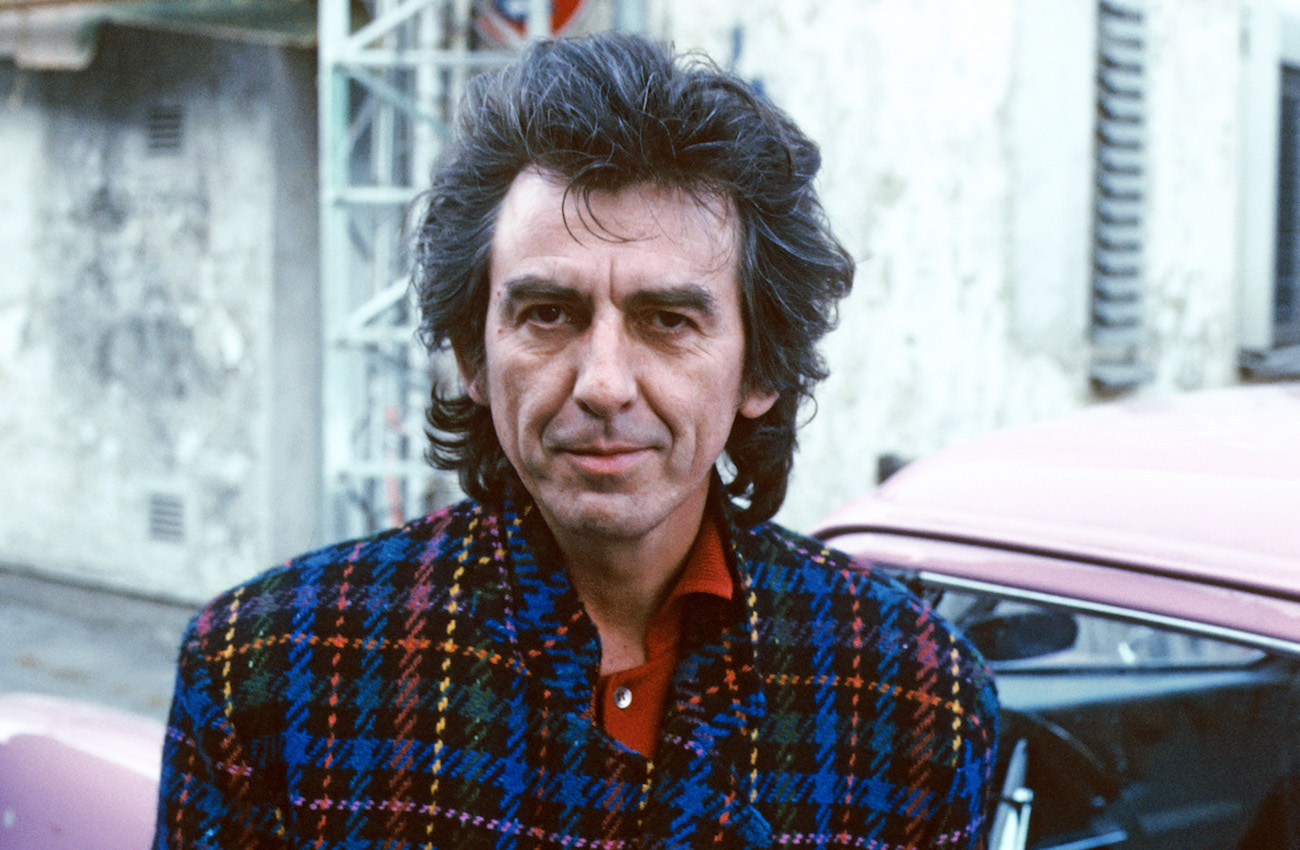
George Harrison Said It Was Weird Transitioning Into the ‘Money’ as the Executive Producer of HandMade Films
George Harrison said it was weird transitioning into the “money” as the executive producer of his production company, HandMade Films. However, he took on the job gracefully, respectfully, and humbly.

George Harrison started HandMade Films by accident
In the late 1970s, Eric Idle called George to see if he knew anyone who could financially back a film. EMI had dropped out of producing Monty Python’s new movie, Life of Brian, due to its seemingly blasphemous subject matter. However, George loved the film’s story and considered funding the comedy. It all happened by accident.
“I asked Denis O’Brien, who had been my business manager since the end of ’73,” George told Film Comment. “After thinking about it for a week, he came back and suggested that we produce it. I let out a laugh because one of my favorite films is ‘The Producers,’ and here we were about to become Bialystock and Bloom.
“Neither of us had any previous thought of going into the movie business, though Denis had a taste of it managing Peter Sellers and negotiating some of the later Pink Panther films. It was a bit risky, I guess, totally stepping out of line for me, but, as a big fan of Monty Python, my main motive was to see the film get made.”
Life of Brian was George’s initial step into the film business. However, as scripts kept coming in, it became harder and harder for him to get out. If George was going to keep his film company, he wanted it to remain a small British business.
“I personally would not like to see HandMade Films turn into an American company in New York or Los Angeles,” George said. “I like it being in a nice little office in England.”
Fortunately for George, HandMade Films didn’t become an American company. If it did, George thought it’d become a big-shot company. He wanted it to remain small, British, and, most importantly, humble.
George found it strange transitioning to the ‘money’ at HandMade Films
HandMade Films worked well and stayed humble because George took on his new role effortlessly and didn’t get bogged down by becoming “the money.” However, ‘in a way,” George found it strange wearing another hat at HandMade Films.
George was a humble boss, not one of those scary executive producers. However, that didn’t make him a pushover.
“When I was acting, there was always the feeling that the artists were the clever ones who do everything—and then there were these horrible people who put the money up and don’t know anything,” George said. “Everyone subscribed to that old Hollywood myth that Executive producers hate everything and chop everything up after you’ve done it.
“When they’d walk into a studio, it would be, ‘Look out, lads, here comes ‘The Money,” with everybody cringing at those fat cats. So it is sort of funny being a simple musician who’s now a producer or—inverted commas—’The Money.’ I can see it from both sides. It’s nice to let people have as much artistic freedom as possible, but I’m the one who has to pay back the bank.
“If they want total freedom, they have to get their own money and make their own films. It has to be a give and take. But I think we’re quite reasonable.”
George said he got an award for having the only British film company left
The former Beatle’s attitude toward the film business worked. Soon George was spearheading the British film industry with HandMade Films.
In 1986, George received the London Standard Film award for his contribution to British filmmaking. However, since George was always humble, he truly didn’t believe he deserved it. He joked that he received the award because there was no other British film company around to give it to.
During an interview, The Today Show said many people thought George had saved British filmmaking with his film company. “Well, I think it was more of the award for the only English-British company that’s left,” George joked.
“And I think it was just-they thought, ‘Well, we better give them something because they may be the only company left next year, I don’t know. But it was nice anyway. At least they recognized that we were around doing things.”
George eventually traded his film hat for his music one. He believed there were deep-rooted issues in the music industry, but he preferred it to the movie business.


